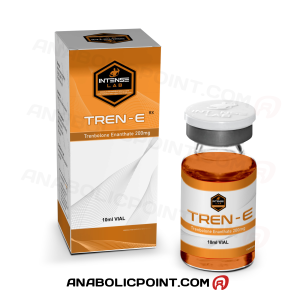Your basket is currently empty!
The Ultimate Guide to Omega-3 Fatty Acids: Benefits, Sources, Dosage, and Frequently Asked Questions
Omega-3 fatty acids are essential fats that play a critical role in human health. Unlike some nutrients that the body can produce, omega-3s must be obtained through diet or supplements. With a variety of health benefits, from supporting heart and brain health to reducing inflammation, omega-3s have become a popular focus in nutrition science and health conversations. In this comprehensive guide, we’ll explore everything you need to know about omega-3 fatty acids, including their sources, benefits, optimal dosage, and answers to the most frequently asked questions.
What are Omega-3 Fatty Acids?
Omega-3 fatty acids are a group of polyunsaturated fats essential for various bodily functions, including maintaining cell membranes, supporting heart health, and reducing inflammation. Omega-3s are labeled “essential” because the body cannot synthesize them independently; thus, they must come from diet or supplements. Known for their impact on both physical and mental well-being, omega-3s are widely studied for their effects on cardiovascular, cognitive, and immune health.
Types of Omega-3s
There are three main types of omega-3 fatty acids, each with unique benefits and sources:
a. Eicosapentaenoic Acid (EPA)
EPA is primarily found in fish and other marine life. It’s known for its anti-inflammatory properties and its role in cardiovascular health.
b. Docosahexaenoic Acid (DHA)
DHA is essential for brain and eye health. It’s prevalent in fish and seafood and is a major structural component of the brain and retina.
c. Alpha-Linolenic Acid (ALA)
ALA is a plant-based omega-3, found in seeds, nuts, and vegetable oils. The body can convert a small portion of ALA into EPA and DHA, but this process is inefficient, so direct sources of EPA and DHA are generally preferred.
Sources of Omega-3s
Omega-3s can be obtained from both animal and plant sources, with different sources offering different types of omega-3s.
Animal Sources
- Fatty Fish: Salmon, mackerel, sardines, trout, and herring are rich in EPA and DHA.
- Fish Oil Supplements: A convenient option for those who do not consume fish, providing concentrated EPA and DHA.
- Krill Oil: Sourced from small crustaceans, krill oil also contains EPA and DHA.
- Eggs: Some eggs are enriched with omega-3s, providing small amounts of EPA and DHA.
Plant Sources
- Flaxseeds and Chia Seeds: These seeds are among the best sources of ALA, the plant-based omega-3.
- Walnuts: Known for their healthy fat content, walnuts provide a good amount of ALA.
- Hemp Seeds: Another plant-based source of ALA, popular in plant-based diets.
- Algal Oil: Made from algae, algal oil is a vegan source of EPA and DHA, commonly used in plant-based omega-3 supplements.
Health Benefits of Omega-3 Fatty Acids
Omega-3 fatty acids have been linked to a wide array of health benefits, supported by scientific research:
a. Heart Health
Omega-3s are well-known for their cardiovascular benefits. They can reduce triglycerides, lower blood pressure, decrease blood clotting, and reduce inflammation, all of which contribute to a lower risk of heart disease.
b. Brain Health and Cognitive Function
DHA is vital for brain development and cognitive function. It helps maintain brain structure and function and is essential for memory and learning. Studies also suggest that omega-3s may reduce the risk of neurodegenerative diseases, such as Alzheimer’s.
c. Eye Health
DHA is a major structural component of the retina, and adequate intake of omega-3s can help protect against age-related macular degeneration (AMD) and other eye conditions.
d. Joint Health and Inflammation Reduction
Omega-3s have anti-inflammatory effects that can help alleviate symptoms of arthritis and joint pain. EPA, in particular, reduces inflammation and may be effective in reducing symptoms of rheumatoid arthritis.
e. Mental Health
Omega-3s, especially EPA, have been shown to reduce symptoms of depression and anxiety. They play a role in neurotransmitter function, which affects mood regulation.
f. Skin Health
Omega-3s can improve skin barrier function, reduce inflammation, and support hydration, helping to alleviate conditions like acne, psoriasis, and dry skin.
g. Pregnancy and Infant Development
Omega-3s are crucial during pregnancy and early development for the health of both the mother and the baby. DHA is vital for fetal brain and eye development, and adequate intake of omega-3s may reduce the risk of preterm birth.
Recommended Omega-3 Dosage
There is no one-size-fits-all recommendation for omega-3 intake, but general guidelines exist:
- General Adult Recommendation: 250–500 mg of combined EPA and DHA per day for overall health.
- Heart Health: 1,000 mg per day of combined EPA and DHA.
- Pregnancy and Lactation: 200–300 mg of DHA daily for fetal and infant development.
- Children: Recommendations vary by age, but around 50–100 mg of DHA is generally suggested for young children.
Potential Side Effects and Risks
Omega-3s are generally safe when consumed at recommended levels, but high doses can lead to certain side effects:
- Digestive Issues: Fish oil supplements may cause mild digestive discomfort, including nausea and diarrhea.
- Blood Thinning: Omega-3s can have a blood-thinning effect, so individuals on blood-thinning medications should consult a healthcare provider before increasing omega-3 intake.
- Fishy Aftertaste: Some people report a fishy aftertaste or odor when taking fish oil supplements, though enteric-coated or flavored options may minimize this.
Omega-3s in Special Populations
Some groups have specific omega-3 needs:
- Pregnant and Breastfeeding Women: DHA is essential during pregnancy, as it supports fetal brain and eye development.
- Vegetarians and Vegans: Algal oil is a vegan source of EPA and DHA, an alternative for those who do not consume fish.
- Individuals with Cardiovascular Conditions: Higher omega-3 intake may be recommended for people with cardiovascular disease.
How to Choose Omega-3 Supplements
When choosing omega-3 supplements, consider:
- Purity and Quality: Choose reputable brands tested for contaminants like heavy metals.
- Form: Omega-3s come in triglyceride or ethyl ester forms, with the triglyceride form generally being better absorbed.
- Concentration: Look for the amount of EPA and DHA per serving rather than total fish oil content.
Omega-3 vs. Omega-6: Balancing Your Intake
The typical Western diet is high in omega-6 fatty acids, found in oils like sunflower and soybean oil. Omega-6s are essential, but they promote inflammation when consumed in excess. Ideally, the omega-3 to omega-6 ratio should be balanced at around 1:4 or lower. Increasing omega-3 intake and reducing omega-6 intake can help achieve a healthier balance.
10 Most Common Questions About Omega-3 Fatty Acids
1. What is the best source of omega-3?
- Fatty fish like salmon, mackerel, and sardines are the best sources of EPA and DHA, while flaxseeds, chia seeds, and walnuts are rich in ALA for those who prefer plant sources.
2. How much omega-3 should I take daily?
- For general health, 250–500 mg of combined EPA and DHA daily is recommended, though requirements vary based on age, health status, and specific goals.
3. Can I take too much omega-3?
- Yes, high doses can increase the risk of bleeding, digestive issues, and potentially immune system suppression. It’s generally safe to stay within the recommended limits.
4. Are omega-3 supplements as effective as eating fish?
- While supplements provide concentrated EPA and DHA, eating fish offers additional nutrients like protein, vitamin D, and selenium.
5. Is it safe to take omega-3s during pregnancy?
- Yes, omega-3s, especially DHA, are essential during pregnancy for fetal development, but consult a healthcare provider for guidance on safe amounts.
6. How does omega-3 help the brain?
- Omega-3s, particularly DHA, are important for maintaining brain structure and function, supporting cognitive abilities and reducing the risk of neurodegenerative diseases.
7. Can omega-3s improve mood?
- Yes, omega-3s, particularly EPA, have been linked to reduced symptoms of depression and anxiety.
8. Do vegetarians need omega-3 supplements?
- Since ALA is less effective than EPA and DHA, vegetarians may benefit from algal oil supplements, which provide a direct source of EPA and DHA.
9. Can omega-3s improve skin health?
- Yes, omega-3s can improve skin hydration, reduce inflammation, and potentially benefit conditions like acne and psoriasis.
10. What is the best time to take omega-3 supplements?
- Omega-3s are best absorbed with meals, especially those containing fat, as fats help with omega-3 absorption.
Omega-3 fatty acids are essential nutrients with substantial benefits for heart, brain, and overall health. By understanding the different types, sources, and recommended intake, you can optimize omega-3 intake to support your health goals. With a balanced approach, omega-3s can be a powerful addition to a well-rounded, nutritious diet.












